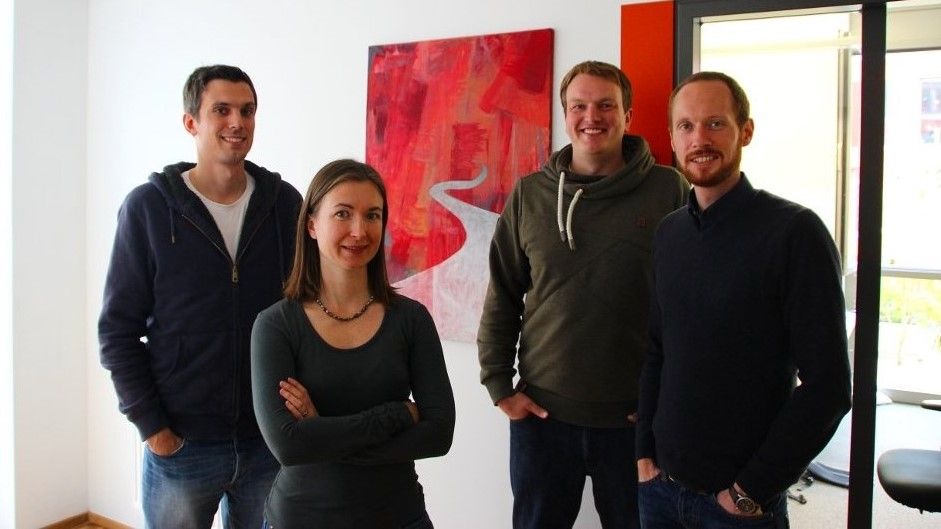With the rise of quantum computing, Tutanota, a secure email provider, is taking steps to stay ahead in the cryptography game. Quantum computers have the potential to solve currently unsolvable complex problems, including breaking existing encryption methods. If encryption is compromised, VPN services, encrypted messaging apps, and even online banking would be at risk as sensitive information could be accessed by third parties. That’s why Tutanota has launched PQDrive, a project focused on making cloud storage post-quantum proof.
Matthias Pfau, the co-founder of Tutanota, emphasized the need for quantum-resistant cryptography, stating, “Post-quantum secure encryption is the next level of security—one that is urgently needed with the advancements in quantum computing. We at Tutanota will make sure that we are always one step ahead to secure data now and in the future.”
Although fully implemented quantum computing solutions may be a few years away, the privacy risks are already significant. It usually takes a considerable amount of time for new developments in cryptography to become fully operational. The current methods of encryption are bound to become obsolete, and this will have far-reaching consequences for individuals and businesses. Governments could potentially breach citizens’ data confidentiality, while cybercriminals could steal finance and other sensitive information for personal gain.
In light of this, it is crucial to protect encrypted data now in order to prevent future security breaches. Tutanota is not the only entity concerned about this issue. The U.S. National Institute for Standards and Technology (NIST) has been working on standardizing quantum-resistant algorithms since 2016, and VPN providers like NordVPN are currently exploring ways to ensure their services are quantum-safe.
To address the security risks posed by quantum computing, Tutanota has received a €1.5 million grant from the German government and partnered with The University of Wuppertal to launch the PQDrive project. The aim is to create an end-to-end encrypted cloud solution that can securely store and exchange data, even in the face of quantum computers.
Cloud computing has been a subject of concern for experts due to the escalating threats. Around 90% of cybersecurity professionals worry about data loss, leaks, and breaches of privacy and confidentiality. Tutanota is striving to develop a secure drive solution called TutaDrive that combines the sovereignty of local storage with the advantages of the cloud. While a specific timeline for the launch is not yet established, the team plans to release a beta version for testing before the full launch. Tutanota users will have the opportunity to provide feedback and suggest improvements based on their needs.
Pfau mentioned that quantum computers will soon be able to decrypt data that is normally encrypted, but they will struggle with post-quantum secure encryption. That’s why Tutanota plans to use a hybrid encryption approach initially, encrypting data using both classical and post-quantum proof algorithms. This double protection will give the new algorithms time to prove their safety.
PQDrive represents the last step in Tutanota’s mission to achieve post-quantum resistance. The company began this mission three years ago with PQMail, making both their email and calendar apps post-quantum resistant. The team has already started implementing the new algorithms into the software, and by 2024, all 10 million Tutanota users will have access to fully updated applications.
While securing files on a post-quantum resistant cloud is still a distant goal, the PQDrive project is expected to create approximately 30 new jobs in Hannover over the next three years. Tutanota is fully committed to investing in employee growth in order to develop innovative tech solutions that can effectively counter future security threats.
Pfau acknowledged that this battle between man and machine is also a cat and mouse game between hackers and security experts. While the introduction of this technology will create new challenges, advancements will also be made on both sides.
Denial of responsibility! TechCodex is an automatic aggregator of the all world’s media. In each content, the hyperlink to the primary source is specified. All trademarks belong to their rightful owners, and all materials to their authors. For any complaint, please reach us at – [email protected]. We will take necessary action within 24 hours.
Alex Smith is a writer and editor with over 10 years of experience. He has written extensively on a variety of topics, including technology, business, and personal finance. His work has been published in a number of magazines and newspapers, and he is also the author of two books. Alex is passionate about helping people learn and grow, and he believes that writing is a powerful tool for communication and understanding.


